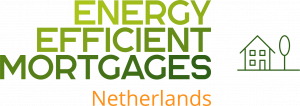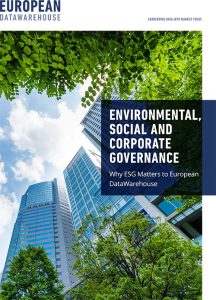Energy Efficient Mortgages NL Hub initiative set to drive down residential carbon emissions
Dutch initiative promotes energy-efficient mortgages
In September 2021 stakeholders in the Dutch residential mortgage market gathered to form the Energy Efficient Mortgages NL Hub (EEM NL Hub).Its aim is to accelerate thedevelopment of climate-friendly housing in the Netherlands by defining and maintaining a framework for energy-efficient mortgages, giving investors and buyers greater transparency. In doing so, it will align the Dutch mortgage market with EU and global sustainability regulations, including the Paris Climate Agreement, the EU Green Deal and EU Climate Law. These set a legally binding target of net zero greenhouse gas emissions by 2050.

The Netherlands has always taken a proactive approach towards the implementation of EU sustainability initiatives. They have been incorporated into the national climate and energy plan (NCEP), also known as the klimaatwet (“climate law”). Back in 2019, the leading Dutch financial companies signed the national climate accord, the klimaatakkord, in which they expressed the industry’s commitment to the EU Green Deal and the drive to sustainable finance.
Homes are fundamental to decarbonisation
Residential buildings are responsible for approximately 40% of EU energy consumption and 36% greenhouse gas emissions so they must play a fundamental role in decarbonisation efforts. Currently, most of them are not energy efficient (about 75%), and only a tiny proportion are renovated every year (around 1%). Therefore, the improvement of the housing stock’s energy efficiency would represent a huge step forward in reaching carbon-neutrality goals linked to the Green Deal. Green mortgages are an important part of this effort.
The Dutch mortgage market has specific features. It is mainly financed through the capital markets via covered bonds, securitisations, or direct investment structures. Moreover, Dutch mortgages are a sought-after investment class due to their strong credit performance and the high level of transparency. Overall, the Dutch mortgage sector enjoys a high level of standardisation from underwriting standards and servicing to the securitisation framework.
Energy efficiency data is vital
That said, some additional work must be undertaken to specify a common and transparent application of the EU Taxonomy with respect to Dutch mortgages to stimulate market growth, customer value maximisation and product development.
The EEM NL Hub has been endorsed by a wide range of stakeholders including lenders, investors, insurers, real estate companies and some technology companies. European DataWarehouse will play a proactive role within the EEM NL Hub working groups to facilitate forthcoming needs with respect to data and disclosure, in line with our extensive experience on data quality and regulatory reporting.
We will draw on our technology experience with data warehousing and several projects covering energy efficiency data, such as the Energy efficiency Data Protocol and Portal (EeDaPP) and the development of a matching software called Giuditta. This will be an asset in helping the EEM NL Hub to achieve its objectives. In addition, there are a significant number of organisations, rating agencies, legal and consultancy firms supporting the initiative as affiliated members of the EEM NL Hub.
European DataWarehouse and ESG
Environmental, Social, and Corporate Governance (ESG) principles have moved into the investment mainstream. They are the three key criteria that retail and institutional investors increasingly apply to measure the sustainability and societal impact of an investment in a company or business.
Through European DataWarehouse’s ESG efforts, we strive to provide first-rate customer service while considering positive social and environmental outcomes and good governance practices. You can find out more about our ESG commitment and why we support initiatives such as Giuditta and EEM NL Hub in our ESG report.
European DataWarehouse has been providing transparency for asset-backed securities since 2013. Find out more at eurodw.eu
